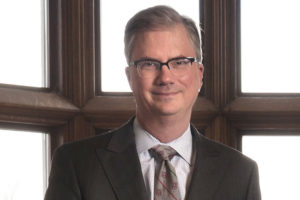Washington University in St. Louis is stepping up its efforts to stop sexual assault — expanding both prevention programs and crisis services and launching a new research initiative to develop and test solutions. The results could change how universities nationwide tackle sexual assault, relationship violence, stalking and harassment.

“Our students, staff and faculty are united in the belief that Washington University must look at the entire picture,” said Provost Holden Thorp who, along with Sharon Stahl, vice chancellor for students emerita, convened the Sexual Assault & Relationship Violence Task Force in 2014. “That means continuing to add resources where they can make an impact and understanding the underlying factors that contribute to sexual assault. We must strive to create a supportive environment for all members of our community.”
New resources to educate students and aid victims include:
- An additional Relationship and Sexual Violence Prevention (RSVP) Center counselor to serve lesbian, gay, bisexual, transgender, queer, intersex and asexual (LGBTQIA) and other marginalized and vulnerable student populations
- A staff member to support School of Medicine students
- Two new Title IX staff members and a dedicated office
- Permanent funding for “The Date,” the student-led production that educates incoming, transfer and exchange students about sexual assault and relationship violence
- Permanent funding for S.A.R.A.H., the student-run, anonymous helpline
- Increased bystander intervention training
- Strengthened programming about stalking, intimate partner violence and sexual harassment
- Programming for Greek men and for athletes
- Education for faculty and staff about federal law and university resources
“These additional resources continue to demonstrate the university’s commitment to acknowledging and addressing issues of sexual assault and relationship violence,” RSVP Center Director Kim Webb said. “This allows us to address specific needs of our campus and strengthen and expand current programming.”
The new initiatives stem from the task force’s findings and from the 2015 American Association of Universities Campus Climate Survey, which showed 10.9 percent of all students and 22.6 percent of female undergraduate students at Washington University have experienced some form of nonconsensual sexual contact.
The survey also revealed that transgender, genderqueer or nonconforming, questioning or not listed (TGQN) students are particularly vulnerable, with 37.4 percent reporting that they have experienced unwanted sexual contact. Those students also are less likely to come forward, Webb said.
“Frequently, students who are part of marginalized and vulnerable communities don’t feel safe going to law enforcement or reporting through nonconfidential processes,” Webb said. “An additional counselor provides another confidential avenue for students. We want to make sure all students have access to the support, counseling and accommodations they need.”
Lori White, vice chancellor for student affairs, said students will play an important role in the fight against assault. One statistic that particularly struck White was that 77 percent of students who witnessed someone heading for a drunken sexual encounter did nothing.
“They did not act, not because they didn’t want to but because they didn’t know how to,” White said. “We want to give our students the tools and the confidence to intervene. It’s really those peer-to-peer conversations and interventions that will make a difference.”
Austin Wesevich, who is set to graduate in May with degrees in medicine and in public health, served as co-chair of the task force and is heartened by the university’s approach.
“These are hard numbers to look at,” Wesevich said. “It takes a real commitment to collect this data, own it and learn from it.”
‘Innovation on the ground’
The second part of the university’s response is a new research institute to be housed in the Institute for Public Health. The Campus Sexual Assault and Relationship Violence Assessment Initiative will be led by Peter Hovmand, founding director of the Social System Design Lab at the Brown School, and will bring together top researchers from the sciences, social work, engineering, law and other disciplines.
“Sexual assault typically is seen as a student affairs issue,” said Adrienne Davis, vice provost and the William M. Van Cleve Professor of Law. “We are moving beyond the standard approach to pilot new approaches and assess what works and what doesn’t. This sort of innovation on the ground isn’t occurring anywhere else.”
Hovmand will set the research agenda in partnership with the RSVP Center, Student Health Services and members of the Campus Sexual Assault Task Force Assessment Subcommittee.
Davis expects some of the research will be focused on LGBTQ students and graduate and professional students, who experience higher rates of relationship violence and sexual harassment.
“Do different populations need different interventions?” Davis asked. “We assume so, but we won’t know until we pilot it and assess it. In the end, we hope to develop evidence-based practices that we can share with other universities.”
Universities nationwide continue to struggle with this persistent problem. The U.S. Department of Education has instructed universities to investigate sexual harassment and violence complaints promptly and fairly or face sanctions. It is unknown whether the Trump administration will continue that policy. Regardless, Davis said the university is committed to combatting sexual violence.
“We won’t turn back,” Davis said. “We want our students to be the next generation of leaders and global citizens. To do that, they must have basic respect for one another. Combatting sexual violence and setting a tone of autonomy, dignity and respect are fundamental values.”